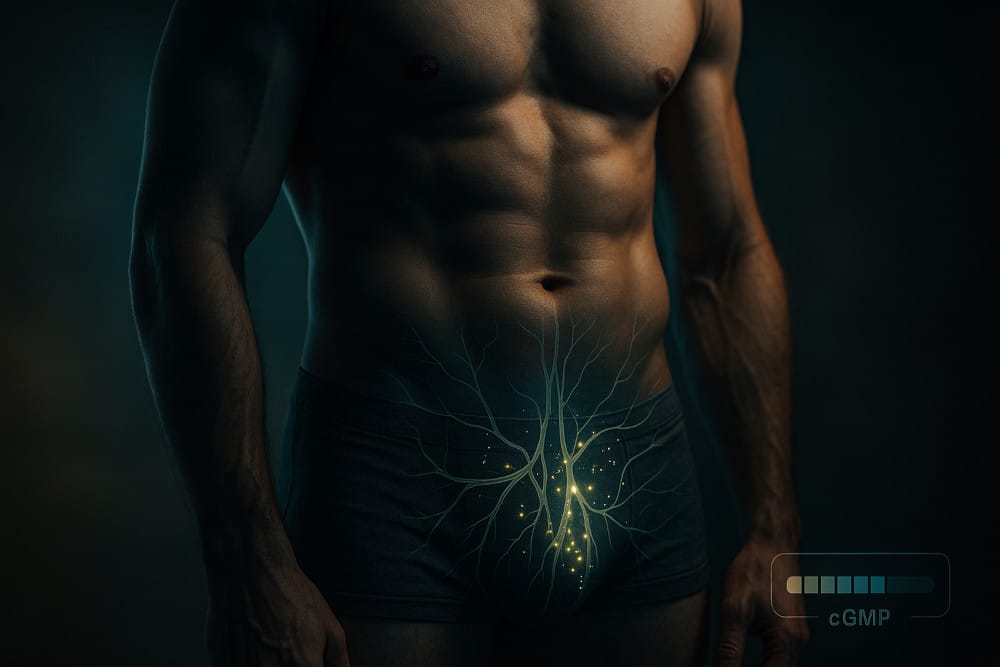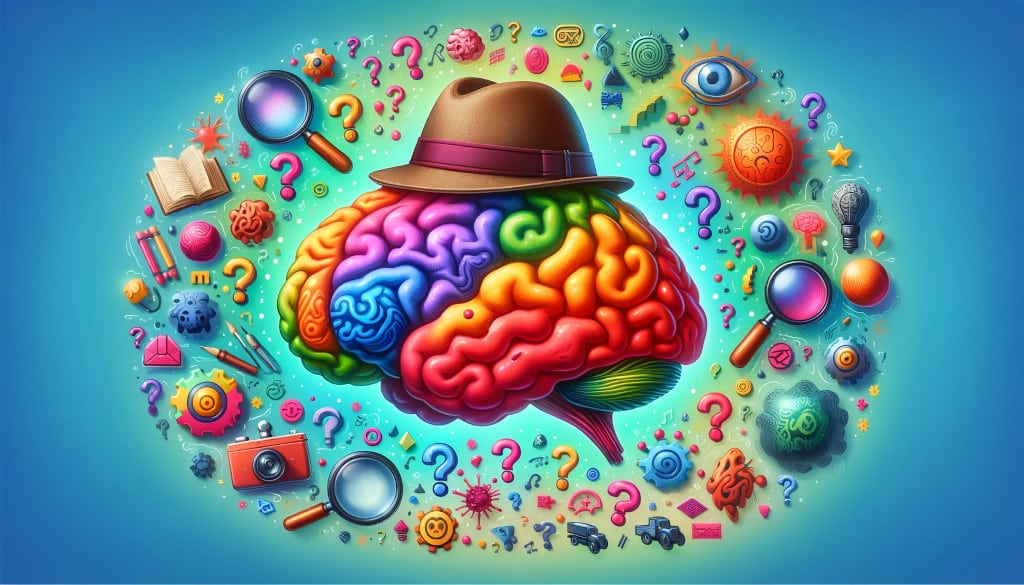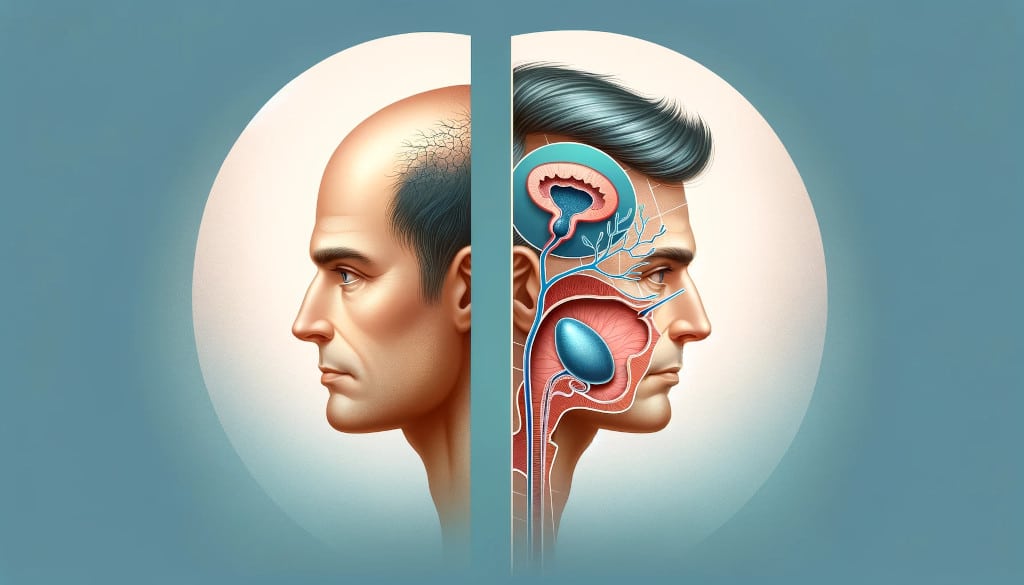Last Updated on July 7, 2024 by Max
Introduction
A reassuringly low rate of adverse outcomes reported after testosterone therapy following radical prostate treatments led to the recent re-examination and clarification of our understanding of the biology of androgens and prostate cancer and, as a result, increased recognition of the benefits of testosterone.
- Introduction
- Functions of Testosterone In the Body
- Symptoms of Reduced Testosterone
- Use Your Mental Resources to Increase Testosterone Levels
- Use Power Postures to Keep Your Testosterone Levels High
- Win Victories and Increase Your Testosterone Levels!
- Why Is Good Sleep a Prerequisite For Testosterone Synthesis?
- How Does Sleep Deprivation Affect Testosterone Levels?
- How to Prepare Yourself For a Night of Good Sleep?
- References
The content of testosterone in the blood of a healthy young man is approximately 630 ng/dl, the normal rates ranging from 264 to 916 ng/dl. We know that testosterone levels drop at a rate of 1-2% per year with age. Therefore, it is not surprising that by age 50, we are already experiencing some negative symptoms listed below. These symptoms are especially severe in people who have concomitant diseases such as diabetes, blood pressure issues, cardiovascular disease, or prostate conditions. But unlike women, who have an entire arsenal of remedies for menopause, there are no accepted recommendations for men that would smooth out the negative consequences of a drop in testosterone levels. Therefore, you can often hear: “We are men – we do not talk about this,” or “I do not use any nasty things,” or something like that. But ignorance is not the best helper here. The symptoms are usually getting worse. With no exaggerations, testosterone is a life-changing hormone, making a male masculine and giving his life a sense of power. Let’s explore what natural remedies men have at their disposal to keep their confidence and shine in the eyes for as long as possible.
Functions of Testosterone In the Body
- Increased muscle mass.
- Fat Burning.
- Activation of metabolism.
- Bone Strengthening.
- Protection against cardiovascular and other diseases.
- Providing secondary sexual characteristics and erection.
- Control of sperm production and their ability to fertilize.
- Maintaining increased interest in the female gender.
- Extension of youth and increase in life expectancy.
- Recharging with vigor and optimism.
- The male character of the attacking is formed, active, proactive, relaxed, fearless, gambling, and prone to adventures and improvisations.
Symptoms of Reduced Testosterone
- Decreased libido.
- Erectile dysfunction.
- Decreased brightness of an orgasm.
- Reduction of sexual body hair.
- Decreased testicular volume and density.
- Increased irritability.
- Decreased ability to concentrate.
- Decreased cognitive functions and poor memory.
- Depression, feeling sad.
- Insomnia.
- Decreased “vital energy,” motivation, initiative, aggressiveness, and self-confidence.
- Frequent lower back pain.
- Decreased muscle mass and strength.
- The increase in the amount of adipose tissue.
- Osteoporosis.
- Decreased skin tone and thickness.
Use Your Mental Resources to Increase Testosterone Levels
There is a joke. Something is wrong with your brain if you think about sex and cannot get aroused. Every joke has some truth. So what happens with our brain or mind that we lose control of the things that seemed to be so easy to achieve? In the previous post, we discussed how our brain controls testosterone production through a well-tuned “feedback” mechanism of the hypothalamus-pituitary-gonadal axis. We got this perfectly working mechanism with birth, but we spoiled it over the years. Depressed by a constant routine, we cease to notice that this natural gift leaves us gradually, as the dog, offended by lack of attention, is hiding in its kennel. Let’s try to use the mind’s natural resources to keep the mechanism running smoothly.
If you are young, then know that by taking care of your sexual health now, you can extend this feeling of youth, the fullness of energy, and self-confidence for decades longer than your peers. If you have already noticed that this magical fire is gradually extinguishing in you, then know that this happens only because you do not keep it. It is totally in your power to stop or slow down this fading. Moreover, Nature has preventively provided man with various means to support this fire. So, let’s start our journey!
Use Power Postures to Keep Your Testosterone Levels High
Humans, just like other animals, show power and dominance through so-called power postures. Energetic people with powerful potential usually adopt open postures that increase the occupied space. Conversely, people with low energy are distinguished by postures, reducing the occupied space by folding inward. But how does posture affect testosterone levels?
Ten years ago, Harvard researchers claimed that powerful posturing just for two minutes raised testosterone levels by 20% and decreased the concentration of stress hormone cortisol by about 25%. The postures used in this study can be seen below. Looks too good to be the truth. That’s exactly what other universities around the world thought about and questioned the major results of the research. Over the past ten years, five laboratories have tried to replicate the study, but the result was the same: no difference in the levels of testosterone or cortisol before and after the power pose. However, the post is not about analyzing the pros and cons of the original hypothesis, rather it’s about the advantages of the power postures as opposed to the powerless postures.

If it needs to show the boss at home, the monkey inflates his chest like a heavy truck wheel. A male bird pretending to mate with a female always sticks out its chest. Humans do the same for any show or need of power, whether upon intimidating the enemy when they show their superiority in competition or to wake up in the morning. Larger chest size is associated with larger lung capacity and, therefore, more oxygen as a potential energy equivalent. Thus, our unconscious desire to take certain postures in some life situations has its reason; these postures provide the body with extra energy resources. We take power poses like energy pills in any situation where the body needs additional energy.

Moreover, the power postures ensure optimal spinal function, relieving both lumbar and cervical pain and warranting the healthy functioning of internal organs through the peripheral nervous system.
Power determines higher control over internal resources such as the body and mind’s health and positive emotions. All this eases a person’s access to the external resources which determine his well-being.
It’s difficult not to track a clear association between power poses and our health and well-being, including proper levels of testosterone. Now a question arises: why not we adopt the power postures to switch our body to a higher level of energy consumption? It is not about using the power pose for two minutes a day, it’s about making them a routine in everyday life. As one author of the research, Amy Cuddy said in her famous TED Talks: “Fake it till you become it.”
Often, it is difficult to escape the decades-old habits such as slouching while walking or sitting at a table, or head malposition upon conversation, even if you attempt to get rid of them. Fortunately, many posture correctors are on the market today to help us out.
Without a doubt, as soon as you put on your new posture corrector, you’ll feel the difference. Over time, you might need at least two weeks, your body will adjust to its natural state because of muscle memory, improving your posture naturally.
Despite the minimal effort required to wear a posture corrector at an affordable price, its purchase will pay off handsomely, improving your health status, relieving various types of back pains, and increasing your self-confidence.
Win Victories and Increase Your Testosterone Levels!
The point is to reproduce the conditions usually maintained by normal testosterone levels. It is about the need for victories. This option is the fastest way to increase hormone production in the body.

It was tested on various types of competitions, including soccer, cricket, dominoes, etc., and the result was the same: testosterone rises in winners and drops in losers. High testosterone is assumed to support the expression of high-status signs and vice versa. Thus, the desire to achieve a goal and keep the social status may be the primary cause of testosterone levels increase.
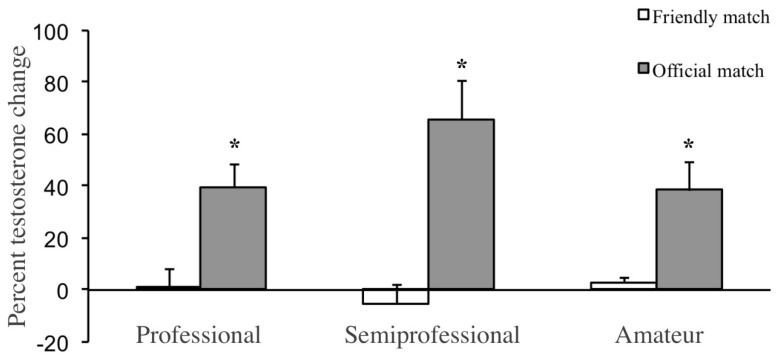
Conversely, when the competition did not pose an actual threat to players’ social status: friendly games or everyday training, testosterone did not change regardless of win or loss. So the levels of testosterone raised only when the team was confronted with an actual challenge. Scientists speculate that the testosterone rise in winners may help support further dominance behaviors required to maintain one’s status.
So, it is enough to set realistic goals and achieve them. Soon you will see that the amount of testosterone has increased.
Follow your biorhythms. Regarding setting personal records, whether athletic, professional, or sexual, it is not superfluous to know what biorhythms testosterone synthesis obeys. According to German sexologist Peter Platz, at about 7 am, testes throw large batches of testosterone into the blood; testosterone activity is over the daytime norm by about 20 percent, further rising to 50% by 9 am. From 9 am to 11 am, the hormonal “factory” operates at low speeds, but after that, it gains drive again, reaching its peak at 4 pm.
Why Is Good Sleep a Prerequisite For Testosterone Synthesis?
Sleep lasting less than 7-8 hours can disrupt your circadian rhythm. The synthesis of all sex hormones, including testosterone, is in synchrony with the circadian rhythm, and they control sleep phases. Therefore, do not be surprised if, after many hours of work, visiting dirty sites and the club until the morning, your sex drive will begin to break. Try to sleep well at night for 7-8 hours. Sleep and testosterone levels are interconnected; low testosterone affects sleep quality and vice versa; sleep deprivation declines blood testosterone levels.
A century ago, sleep duration was about 9 hours against 6-8 hours in our days; over 30% of adults sleep less than 6 hours a day. The situation the scientists attribute to widespread electrification and, as a result, an increase in the daylight period. Exposure to light at night can block melatonin production. Melatonin is the major sleep hormone synthesized by the pineal gland in response to darkness. It supports circadian rhythms and sleep.
How Does Sleep Deprivation Affect Testosterone Levels?
In rats, sleep deprivation lowered testosterone concentration, increased progesterone and glucocorticoid levels, and affected male sexual performance. Glucocorticoids are steroid hormones produced by the adrenal glands and play an important role in reducing certain aspects of the immune response, such as inflammation. The most important human glucocorticoid is cortisol. In animal studies, prolonged rises in glucocorticoid levels created by continued stress resulted in the damage of the neurons and lower memory performance.
Sleeplessness is one of the most common physiological stress, usually lasting for years. Multiple studies have shown that blood testosterone levels depend on physiological conditions such as stress. The stress activates the hypothalamus-pituitary-adrenal axis (do not confuse it with the hypothalamus-pituitary-gonadal axis (HPG)), which raises the concentration of corticosteroids in the blood. In normal, not stressful conditions, the luteinizing hormone stimulates the Leydig cells in testicles, and the exciting Leydig cells secrete testosterone. Elevated levels of corticosterone depress the HPG axis and lead to programmed death of the Leydig cells and decreased production of testosterone.
Regardless of nighttime or daytime sleep, testosterone concentrations peaked during sleep compared to daytime. This means that the longer the sleepless periods, the longer and deeper sexual hormonal imbalances.
In another study, restriction of sleep only to five hours during a week in ten healthy young men resulted in a meaningful drop in daytime testosterone levels up to 15%. We should note that at least 15% of the working population in the US experience like conditions. The same decrease in the daytime testosterone levels was observed after one night of complete sleep deprivation and after a 4.5-hour sleep limited to the first half of the night. If the shortened sleep episodes were restricted to the second half of the night, which is denser in REM sleep, the daytime testosterone levels were not affected. From this standpoint, research suggests that testosterone production is more intense during REM sleep.
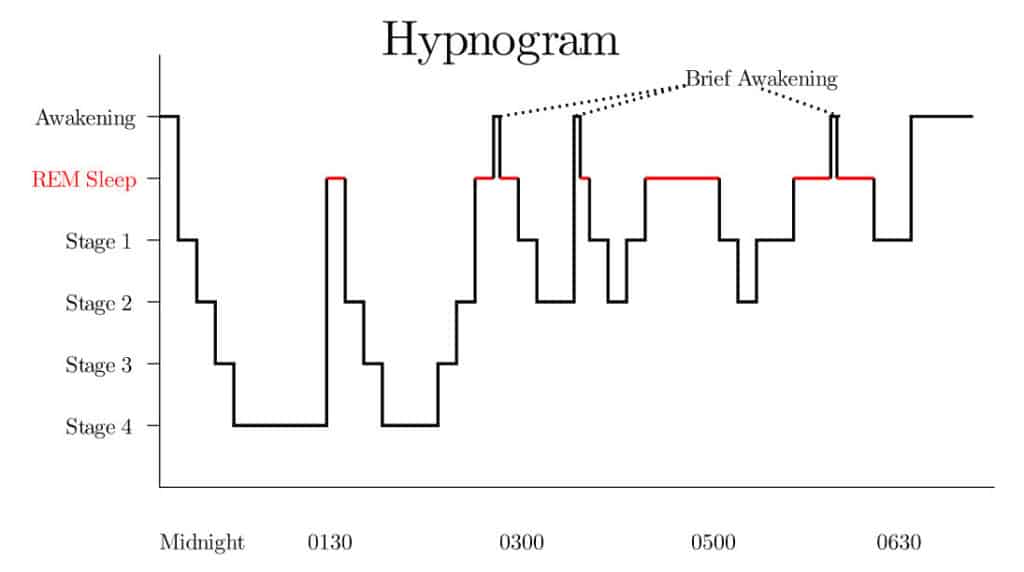
By I, RazerM, CC BY-SA 3.0, https://commons.wikimedia.org/w/index.php?curid=17745252
Rapid eye movement sleep (REM sleep or REMS) is a unique phase of sleep in mammals and birds, distinguishable by random/rapid movement of the eyes, accompanied with low muscle tone throughout the body, and the propensity of the sleeper to dream vividly. REM sleep is physiologically different from the other phases of sleep, which are collectively referred to as non-REM sleep.
https://en.wikipedia.org/wiki/Rapid_eye_movement_sleep
In males, the decline of testosterone levels with age, unlike the reduction of estrogen in females during menopause, happens gradually, starting at 30-40, and lasts at the rate of 1-2% a year till the end of life. This is why men do not feel the negative consequences of physiological changes occurring in the body with age so keenly. This gradual decline in testosterone levels is accompanied by reduced duration and quality of sleep. A study of 67 men between 45 and 74 showed that poorer sleep quality in men is correlated with lower testosterone levels.
To sum up, the findings of the studies show that insomnia produces in our body physiological changes similar to that of oxidative stress. It activates the HPA axis and hinders the HPG axis, producing a high level of corticosteroids. High corticosteroids and inhibition of testosterone synthesis are involved in certain cases of infertility in men and women. Moreover, the studies show that sleeplessness adversely affects male and female reproduction functions and cuts across the next generation by jeopardizing their sexual performances.
How to Prepare Yourself For a Night of Good Sleep?

Sleep time is not a waste of time, as, unfortunately, many people still think; our body must carry out well-coordinated work to restore and regenerate physical and mental health. Therefore, if we do not want to wear out our bodies so quickly, then we must change our lifestyle and prepare the conditions under which our bodies will perform their night work properly.
1. Normalize Your Hormonal Balance
Normalize your testosterone levels. If you are over 55 and notice frequent mood changes, fatigue, poor sleep, profuse night sweating, and other signs of low testosterone, then first try to normalize your hormonal balance. Low testosterone levels are one of the principal causes of poor sleep quality. If you do not care about adequate physiological conditions for good sleep, no super modern sleeping areas will help you. There are various natural supplements and testosterone boosters on the market. Choose 2-3 that work well for you.
The results of the study of 32 men and 31 women (2013) showed significant improvements in the Tongkat Ali group compared to the Placebo group for tension (−11%), anger (−12%), and confusion (−15%). Tongkat Ali reduced cortisol concentration by -16% and increased testosterone levels by 37%.
Normalize your melatonin levels. If you just can’t stop your mind from thinking about things, reprocessing, ruminating, and you have insomnia are classical symptoms of serotonin deficiency. Serotonin is the precursor to melatonin, which helps us to sleep. The major amino acid used for low serotonin is tryptophan. A huge body of research shows that L-tryptophan can improve sleep quality in people of all ages. Start with 500 mg of tryptophan a night and watch the result. If you feel that sleep is getting better in a week, you can raise that amount to 1000mg, then 1500mg, until you find what amount works best for you.
Serotonin and melatonin, as chemicals involved in the transmission of signals along neural circuits, largely determine the stability and adequacy of the nervous system’s response to external events. Therefore, low tryptophan as a precursor of serotonin negatively affects not only the quality of sleep but also cognitive functions and the ability to learn, increases aggression, and impulsiveness contributes to anxiety.
Normalize your Gamma-Aminobutyric Acid (GABA). If you feel physical tension in your body, too much thinking, and low self-esteem, these are low GABA symptoms.
In a study in 2018, 40 patients who complained of insomnia symptoms were treated with GABA extracted from unpolished rice germ; 300 mg daily for four weeks. The study showed that treatment with GABA improved subjective sleep quality and objective sleep efficacy: sleep latency had decreased from 14 min at pretreatment vs. 6 min. at posttreatment. Sleep efficacy had increased from 79% to 86% (p=0.018) only in the GABA treatment group.
Zinc and B6. Chronic stress, whether internal or external, makes your body dump high levels of Zinc and B6 -vitamins– the raw materials necessary to produce serotonin and GABA. Both these nutrients are commonly deficient. Moreover, Zinc is a reproduction element needed for normal spermatogenesis and maintaining prostate health.
2. Minimize Your Exposure to Blue Light
As we mentioned earlier, our body produces melatonin only in the dark. The blue light signals the brain that it’s still daytime. Therefore, we have to minimize exposure to blue light to prepare our bodies for sleep. After 6 pm, wear blue-blocking, amber glasses, whether you are sitting at the computer, or smartphone, or watching TV.
3. Develop Your Own Ritual to Dump Stress

We cannot stop worrying, there are so many stressors around, but we have to neutralize or minimize their toxic effects. Develop your own ritual to dump stress. It may be light yoga gymnastics, meditation, or prayer that you follow every day before going to bed. And the situation will change for the better day by day.
References
- Dana R. Carney , Amy J.C. Cuddy , and Andy J. Yap. Power Posing: Brief Nonverbal Displays Affect Neuroendocrine Levels and Risk Tolerance.
- M. Jiménez, et al. Competition Seriousness and Competition Level Modulate Testosterone and Cortisol Responses in Soccer Players. J Int J Environ Res Public Health. 2020 Jan; 17(1): 350.
- Olubodun Michael Lateef and Michael Olawale Akintubosun. Sleep and Reproductive Health. J Circadian Rhythms. 2020; 18: 1.
- Andersen ML, Martins PJ, d’Almeida V, Bignotto M, Tufik S. Endocrinological and catecholaminergic alterations during sleep deprivation and recovery in male rats. J Sleep Res. 2005; 14: 83–90.
- Shawn M Talbott, Julie A Talbott, Annie George, and Mike Pugh. Effect of Tongkat Ali on stress hormones and psychological mood state in moderately stressed subjects. J Int Soc Sports Nutr. 2013; 10: 28.
- Jung-Ick Byun, et al. Safety and Efficacy of Gamma-Aminobutyric Acid from Fermented Rice Germ in Patients with Insomnia Symptoms: A Randomized, Double-Blind Trial. J Clin Neurol. 2018 Jul; 14(3): 291–295.




